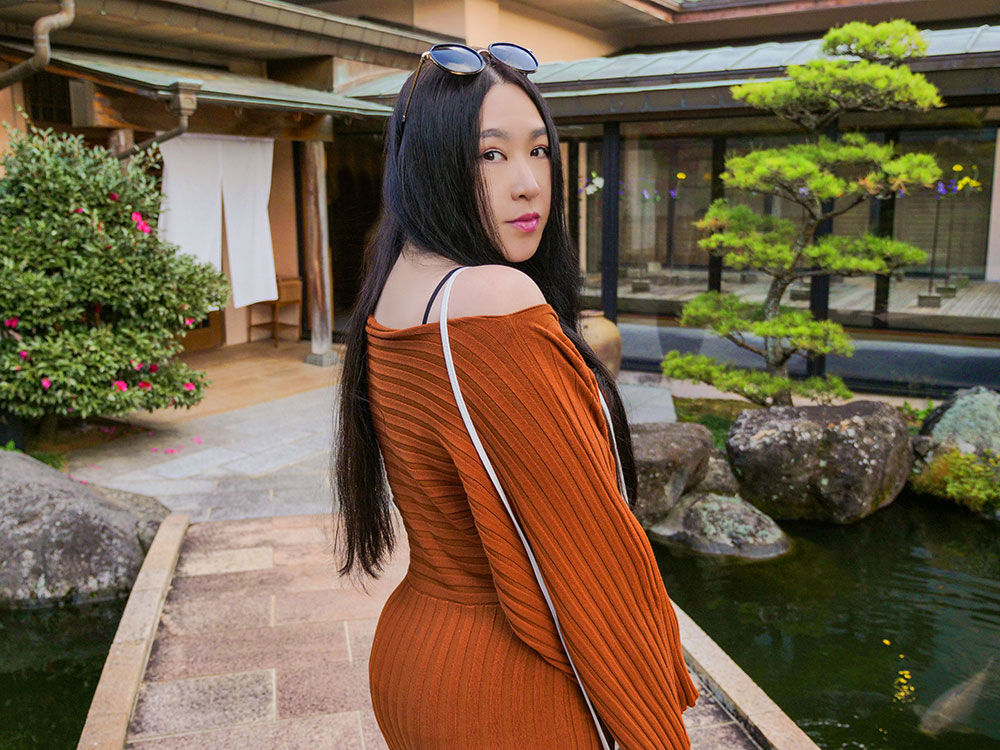With a sound that bends genres and borders, Risa Kumon is quietly redefining what it means to be a Japanese artist in today’s global music scene.
R&B has long been a language of emotion, storytelling, and cultural fusion. Though it was born in the West, its heartbeat now pulses through cities and sounds worldwide, with Asia rising as a vibrant creative hub.
At the forefront of this movement is Risa Kumon, a singer-songwriter blending R&B, jazz, soul, and pop into a style that’s as tender as it is timeless.
More than a vocalist, Risa builds emotional landscapes with her music, weaving her Japanese heritage and global inspirations into songs that feel deeply human.
In this conversation, she shares the moments that shaped her, the lessons learned along the way, and what’s next as her universe continues to expand.
Early Musical Foundations
Q: If you could trace your musical journey back to its roots, which artists or moments would you place on that tree — and why?
Risa Kumon: Music has always felt like home to me, even before I understood what home really meant.
I started playing piano when I was small, and even when my eyesight made certain things harder, music became this place where I could see with my heart. It wasn’t just sound; it was my freedom.
Growing up in Japan, I was surrounded by a little bit of everything. Joe Hisaishi’s cinematic worlds opened up my imagination — they taught me that melodies could hold stories.
Japanese artists gave me so much to learn from, but international artists like Lauryn Hill, Aretha Franklin, and Stevie Wonder really drew me in deeply, not just with their voices, but with the spirit they put behind every word.
It shaped the way I think about music even now — it’s not just about hitting notes; it’s about telling your truth through the music.
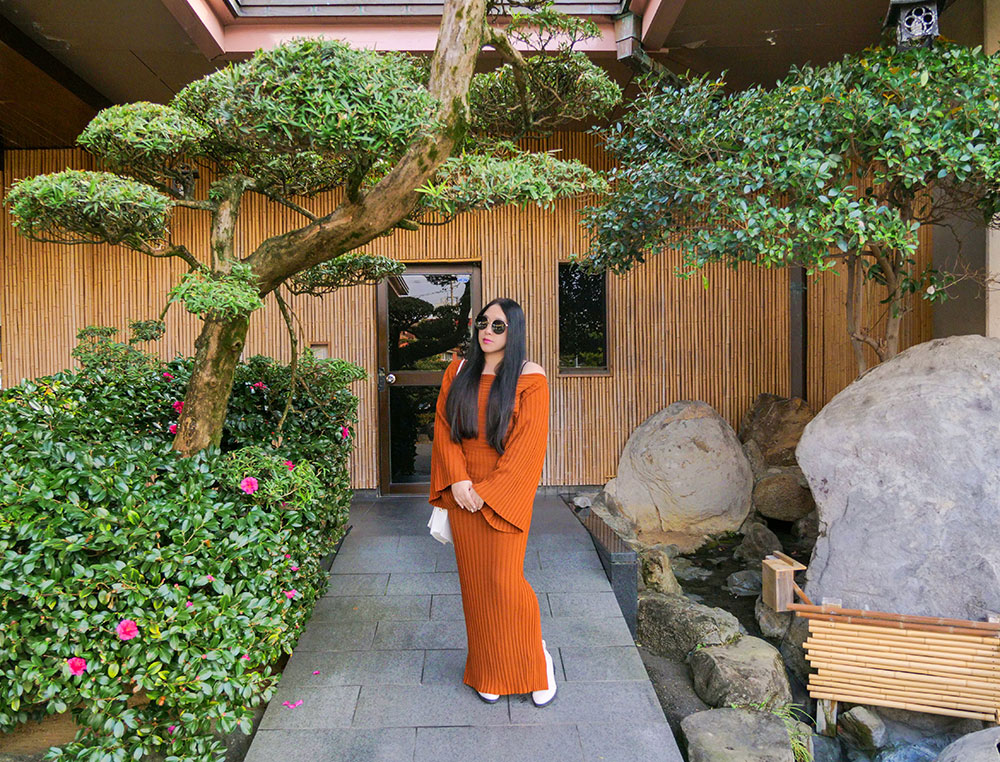
Risa Kumon
Cultural Identity in the Music
Q: Your sound crosses cultures so naturally. Are there moments when your heritage weaves its way into your music without you even planning it?
Risa Kumon: Yes, definitely — it happens naturally. Even when I’m singing in English, there’s a rhythm, a softness, an emotional flow that feels very Japanese to me.
It might be in the way I hold certain notes, or in the spaces between the words.
I never really think about “blending cultures” when I sing — it’s just who I am. My background, my experiences, they shape how I feel the music, and I think that comes through without even trying.
Ri-Verse: A Sonic Universe
Q: Ri-Verse feels like its own world. When you created it, what journey did you hope to take listeners on?
Risa Kumon: Ri-Verse was really about giving myself permission to move between sounds, languages, and emotions without any walls.
The name comes from blending “reverse” and “universe.” I was reflecting a lot at the time, looking back at who I had been and creating a new space where all the pieces of me could belong together. It’s not about chasing perfection but showing the whole picture — the beautiful, the broken, and the parts still growing.
Also, “Ri-” ties into my own name, Risa. While in English “re-” can mean to redo, renew, or reimagine, for me, “Ri-” became a personal symbol — a way to express reinterpreting and reconnecting with the roots of each song.
These songs already carried deep stories long before I touched them — I wanted to reinterpret them through my own voice, honoring where they came from while weaving in where I’ve been.
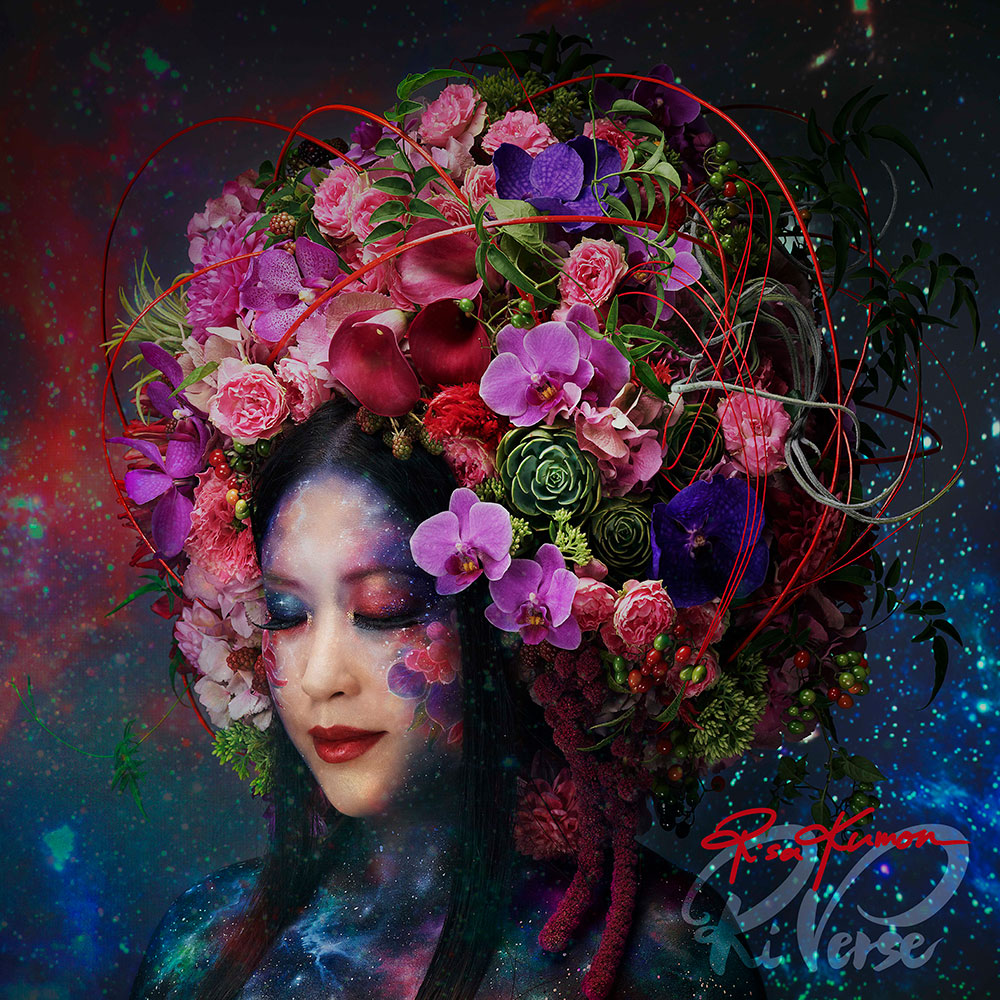
Risa Kumon
Q: Your vocals always carry so much feeling. When you step to the mic, what guides you — emotion, melody, or something else?
Risa Kumon: Usually, I follow the feeling first. Even if I have the whole blueprint laid out, when it’s time to actually sing, I try to stay open and let the emotions guide me.
Sometimes the feeling takes over and I end up bending a melody I thought was already set, or changing something right there in the moment.
When I’m really connected, it’s like the music is moving through me, not the other way around.
It’s not always perfect, and I don’t think it needs to be. That’s what I love about music — it’s not about chasing perfection. It’s about capturing something that feels real for that moment, for who you are right then.
The Creative Process
Q: When inspiration strikes, what usually sparks it — a phrase, a sound, a story?
Risa Kumon: It could really be anything. Sometimes a melody pops into my head when I’m in the shower, or I’ll dream a song and have to grab my phone and hum it real quick before it disappears.
Other times, it’s a memory or a feeling I can’t even explain yet — and music becomes the way I figure it out.
Also, being around people who feel music makes a big difference, too. When you’re creating with the right energy, ideas come to life in ways you could never plan on your own. There’s no set way it happens — it can come from so many different places for me.
Global Collaborations
Q: Ri-Verse features artists and musicians from all over the world. How did that international energy shape the album?
Risa Kumon: Working with people from the U.S., U.K., Japan, Italy, Spain — and so many other places — added so much color to the music. Every musician brought their own perspective, their own soul, and it stretched the music in the best way.
When we were creating, there were no borders. Music was the language we all spoke, and it made me realize — you don’t need to translate emotion. It reminded me how powerful music is. It really can connect people anywhere. I want to connect with more people from many places in the world.
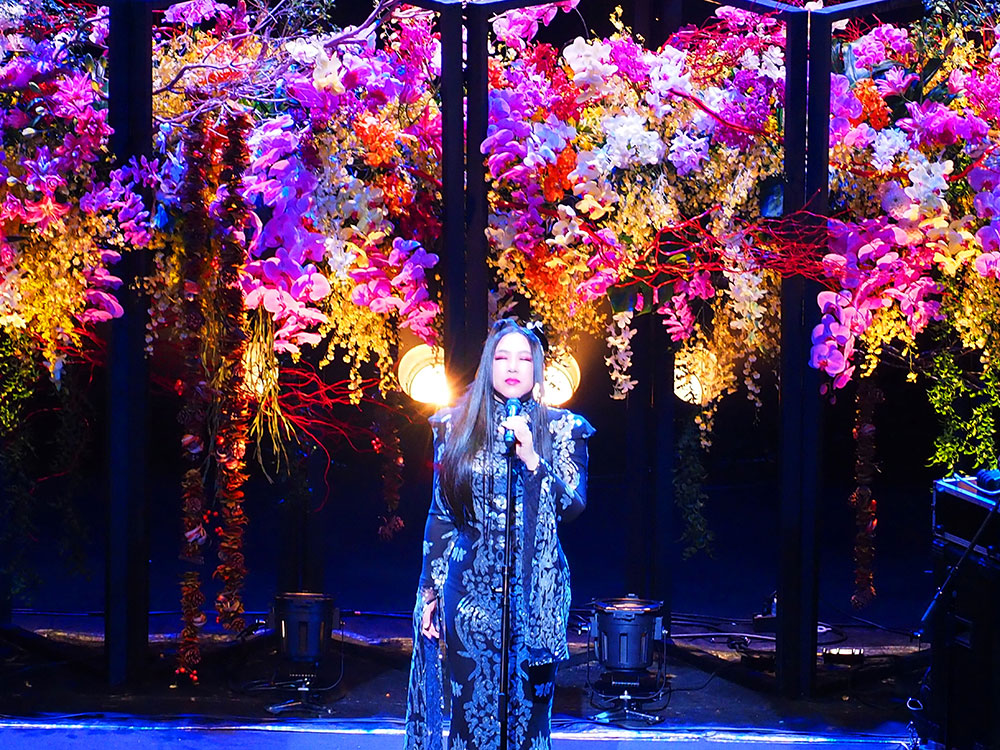
Risa Kumon
Q: Are there any dream collaborations still on your list — artists you’d love to work with one day?
Risa Kumon: I say this all the time, but Joe Hisaishi is someone I have dreamed of working with. His music shaped so much of my childhood. And not just him — Miyazaki’s world with Studio Ghibli’s stories — they’re a huge part of how I see music and emotion today.
Outside of Japan, working with someone like Stevie Wonder would be beyond anything I can put into words.
And Yo-Yo Ma — the way he plays, the feeling he brings into every note — that’s the kind of spirit I always want to be around.
There are so many artists I admire. I believe that when the timing and energy align, the right collaborations naturally find you. I’m just staying open to whatever beautiful connections come next.
Visual Storytelling
Q: Your music videos — like “FREE” and “Nothing Can Change This Love” — feel rich with symbolism. How do you approach bringing your songs to life visually?
Risa Kumon: Actually, all the songs and the visuals from this album are connected.
I wanted the videos to feel like chapters from the same story, each one showing a different side of emotion and growth.
With “FREE“, I wanted to capture the feeling of freedom — the freedom to move, to dream, and to find yourself. The video follows a person traveling through different parts of the world, discovering new parts of themselves along the way. It’s about breaking away from expectations and stepping into your own light, at your own pace.
In “Ain’t No Sunshine“, we filmed in Berlin to really tap into that quiet loneliness. The lighting, the shadows, the atmosphere — everything was designed to reflect that sense of yearning and missing something you can’t quite reach.
And for “Nothing Can Change This Love“, I wanted to bring nature into the story — to show a kind of love that stays rooted no matter how much life changes around it. We used significant landscapes and raw moments to capture that feeling.
Sometimes visuals can say what words can’t. That’s why I treat every video like an extension of the song’s soul — another way to tell the story beyond just the sound in my own world.
Q: You sing beautifully in both English and Japanese. When creating a song, how do you decide which language to express it in?
Risa Kumon: I actually go by the mood of the song. I think some feelings belong to a certain language.
When I write in English, there’s a directness — like I’m speaking straight from the heart without hesitation.
When I sing in Japanese, it’s more subtle, more layered — like painting with softer colors.
Each language carries its own rhythm and emotion, and I love being able to move between them depending on what the song needs.
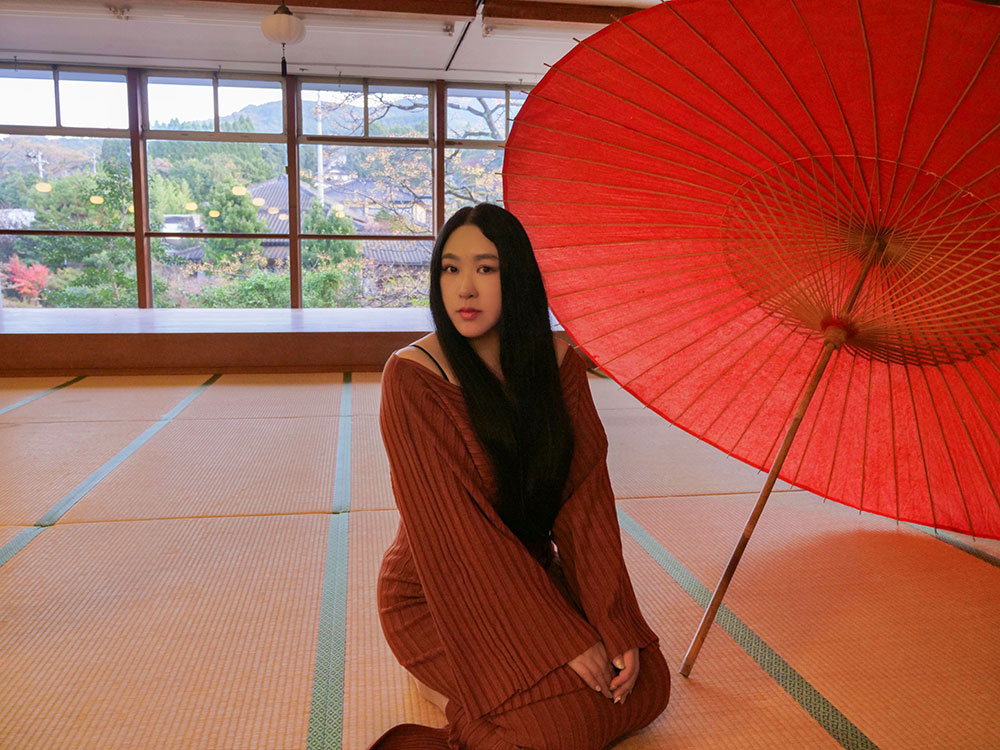
Risa Kumon
Future Visions
Q: Has your vision for your music changed after releasing Ri-Verse?
Risa Kumon: Definitely! Ri-Verse was about looking inward, reflecting.
Now I feel like my next phase is about expanding outward. Connecting with more people. Exploring new sounds I haven’t touched yet. It’s exciting because I don’t feel limited by genre or even language. I feel I’m just getting started.
Q: If you could dream up your ideal next project, what would it look like?
Risa Kumon: Honestly, I’m dreaming of something bigger — something that brings different worlds together in a way you can’t just hear, but truly feel. I’m excited for what’s coming… but I’ll keep the rest a secret for now.
Beyond the Music
Q: You also host a radio show, Trendy Pickups. Can you tell us about it?
Risa Kumon: Trendy Pickups is a show under the R2 Radio network. The show is about discovering — and celebrating — the creative energy happening around us, not just in music, but across cultures. We talk to artists, creators, and brands who are doing something fresh and real. For me, it’s not just about what’s trending — it’s about the stories behind it. Why people create, and what drives them.
When Roro and I started radio back in 2011 in Okinawa, it wasn’t something we planned long-term. It was more like, “Let’s just try it.” But as time went on and we got more opportunities, we really started to love it, especially being able to share another side of entertainment.
We always felt like a lot of interviews became too focused on clickbait — and while that’s part of the culture too (and we enjoy it sometimes!), we wanted a space that spoke more about the art itself.
About inspiration. About uplifting people. Also, being a bridge — connecting Japan with the rest of the world.
That’s still the goal, and I’m proud of what we’ve built.
Right now, we’re trying to balance everything — the radio side, but also our own music, since we’re artists too. But we’re still passionate about radio. We have a lot of new content coming, so definitely stay tuned and subscribe to our YouTube Channel.

Risa Kumon
Q: The “Cosmic Bloom” T-shirt from your Ri-Verse collection has a unique design. What inspired this piece?
Risa Kumon: The “Cosmic Bloom” T-shirt was inspired by the album art from Ri-Verse.
I wanted to create something that fans could wear and feel connected to the music.
The design represents growth and exploring your own universe. It’s a way for people to carry a piece of the album with them and find their own meaning in it. Check it out here.
Q: You’ve also put out some merch, like the Ri-Verse vinyl and the “FREE” 7-inch. What made you want to create these physical things for your fans?
Risa Kumon: Yeah, for me, music isn’t just about listening — it’s something you feel. I wanted to create something people could actually hold and keep.
The Ri-Verse vinyl and the “FREE” 7-inch were both special Record Store Day releases — not just personal merch, but limited editions that went out to retail stores around the world.
The songs already had stories before, but I reimagined them in my own way, and these records became a way for people to take a piece of that with them.
The “FREE” 7-inch even sold out at some shops during the event, but I still have a few copies left that I’m selling myself.
It’s like having a small part of that journey — something real you can keep, not just stream.
Challenges and Staying Grounded
Q: Every journey has its storms. Has a tough moment in your career ever changed the direction of your music?
Risa Kumon: Definitely, there were moments when I questioned if I could keep up, especially when my vision made things unpredictable. But those moments pushed me to slow down, listen harder, and trust my other senses and instincts. That’s when my music became more intuitive, more emotional. Instead of trying to fit into a box, I learned to trust the sound that was true to me. Everyone has ups and downs. It’s part of life. It’s about what you do after that that matters.
Advice for the Next Generation
Q: For artists just starting out — what’s one piece of advice you wish someone had given you at the beginning?
Risa Kumon: Honestly, I feel like I’m still learning every day.
But if there’s one thing I can say, it’s this: be patient with your own growth. It’s easy to look around and feel like you’re not moving fast enough, but art doesn’t follow anyone else’s timeline — only yours. Stay true to what moves you, not to what’s trending.
Protect your passion, nurture it, and trust that your audience will find you when your voice is ready.
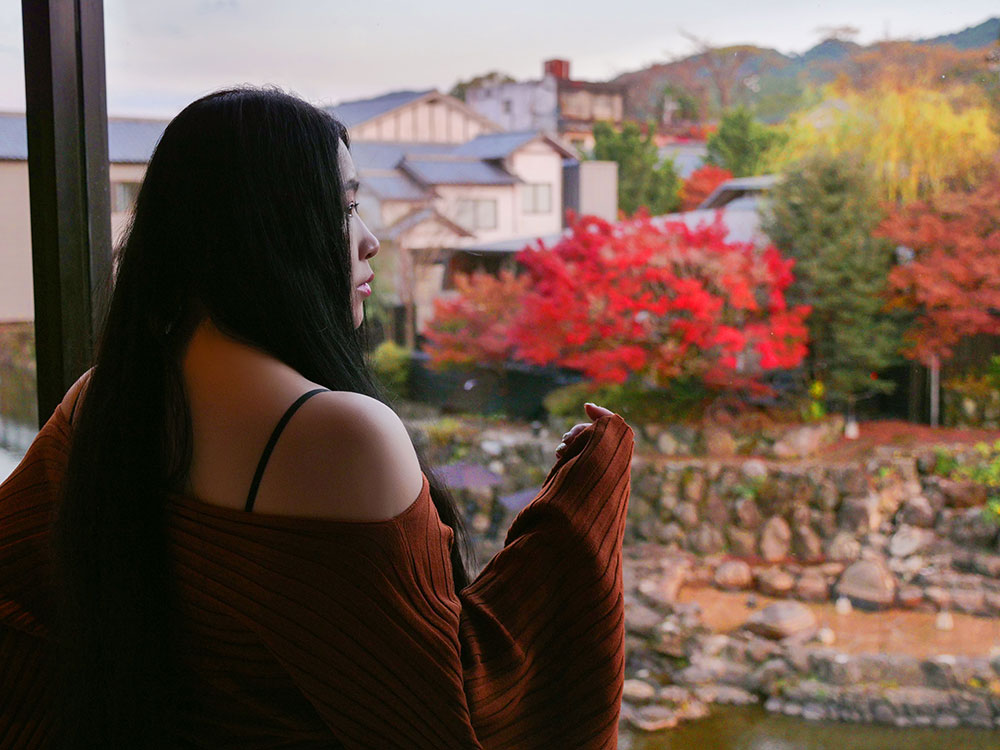
Risa Kumon
Coming Soon: The Next Chapter
Q: Your music keeps evolving. Is there anything coming soon that fans should keep their eyes — and ears — open for?
Risa Kumon: Always! I’m working on some new music that I’m really excited about — something a little different, but still true to who I am. I don’t want to share too much yet, but let’s say: the next chapter is about taking everything I’ve learned and telling new stories even more personally.
Stay tuned… It’s only the beginning.
Stay up to date with Risa Kumon.



